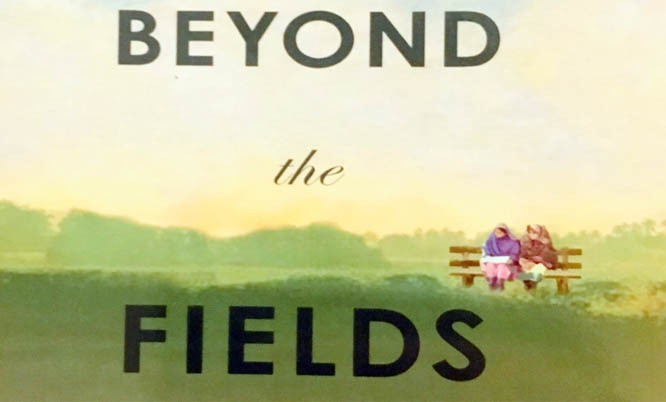
An engaging story of a young village girl unwilling to be chained in archaic notions of honour and respectability

Soothing blues and greens mingle on the cover of Beyond the Fields, a sharp contrast to the dark tale of patriarchal oppression contained within its pages. Set in southern Punjab during the early 1980s, it is the debut novel of Aysha Baqir, founder of Kaarvan Craft Foundation, a non-profit economic development organisation established to empower women in low-income communities.
The powerlessness of women in a deeply patriarchal society is the thread that binds this particular story of injustice. Gender inequality has become a common theme in modern Pakistani literature. What sets this story of gender discrimination apart from other work with the same theme is the author’s choice of the protagonist.
Zara and Tara are the quintessential twins of literature: one character serving as the perfect foil to the other. Tara is the ideal teenage daughter - obedient and mild-mannered. To drive home the perfection of her character according to the yardstick of Pakistani society, she is also bestowed with a fair complexion. Zara is the opposite: strong-willed and dark skinned. The plot revolves around Tara’s rape, but Baqir moves away from the victim to give the narrative voice to Zara.
Beyond the Fields is the story of a young girl unwilling to be chained in archaic notions of honour and respectability. Beautifully crafted sentences and vivid descriptions relate the refusal of a farmer’s daughter to let her, and her beloved sister’s fate be decided by a hypocritical society. Zara is not just the central figure in the novel, but the soul of the novel itself. Though the rape is a pivotal point in the story and has repercussions for the family’s fortunes, it is the impact that it has on Zara’s life that drives the action. Hers is the only ‘character’ in the novel; the rest of the people populating the book are one-dimensional props for her lone struggle for justice and freedom.
Freedom is the central motif of the story. The quest for individual freedom is juxtaposed with economic freedom, and encased in a larger narrative of shrinking political freedom.
The trajectory of Zara’s quest to rescue Tara from a torturous existence is depicted parallel to the rise of an intolerant fundamentalist ideology in the country. Short history lessons are weaved through snippets from life in a small village confronted by external change.
Baqir’s portrayal of the village men is another departure from the usual depictions of men in stories of female subjugation. Unthinking adherence to misogynistic customs is their fatal flaw. Interestingly, it is the women in the story. She must fight for female rights. Internalised patriarchy is real, and its contribution to the subjugation of women in Pakistan needs to be analysed and better understood.
At the end of the day, the novel goes beyond an account of rape and patriarchal limitations in Pakistan. It is a stark reminder of the blatant suppression of women’s rights through the draconian Hudood Ordinance. The social commentary woven in the story is as real as the distressingly frequent reports of harassment and killings in newspapers.
Despite the bleak picture of human rights that emerges from the story, the novel does not leave the reader with an impression of hopelessness. By building the story around Zara’s perseverance in achieving her goals, Baqir lifts it to a tale of resilience of Pakistani women. An engaging read, Beyond the Fields, takes a fresh look at issues that have simmered underneath the surface of Pakistan’s social fabric for decades.
Beyond the Fields
Author: Aysha Baqir
Publisher: Marshal Cavendish
Year of Publication: 2019
Pages: 276
Price: $13.99